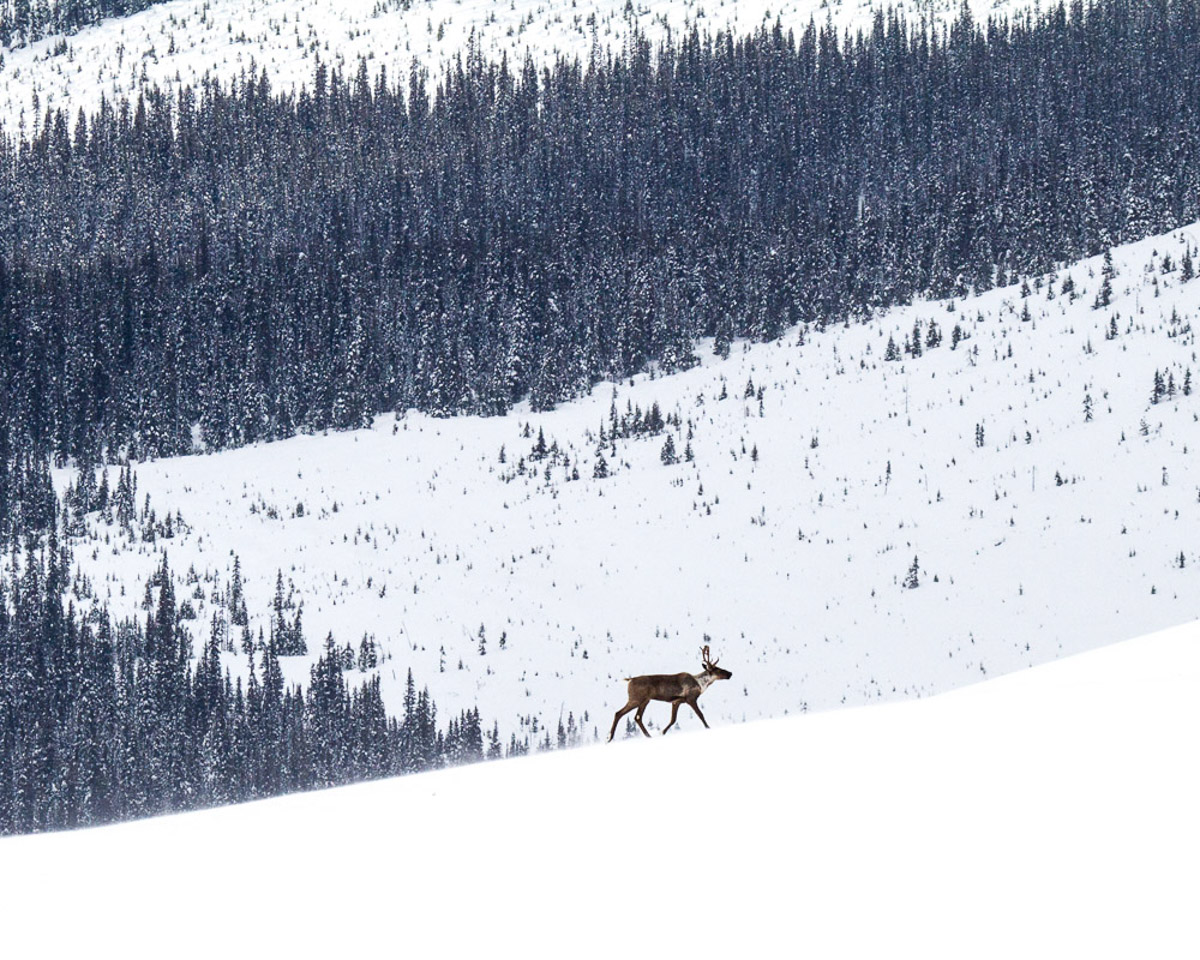
Ontario’s public service heads back to the office, meaning more traffic and emissions
For 15 years and counting, my commute from Mississauga to Toronto has been mired by...
As scientists at the forefront of endangered species research, we are concerned that government backpedaling on endangered species legislation will be a major setback for threatened species, their wild spaces, and the benefits that we derive from them.
British Columbia has a whopping 1,807 species of animals and plants at risk of extinction, more than any other province or territory in Canada.
And yet B.C. is still one of the only provinces in Canada without legislation dedicated to protecting and recovering species at risk.
B.C.’s NDP party platform included the creation of the province’s first endangered species law, and Premier John Horgan reinforced this in the mandate letter to the Minister of Environment and Climate Change Strategy, George Heyman.
We welcomed this announcement and have worked over the last year to advise the government so that the new law is based on strong science.
But recently, Premier Horgan appeared to back-track on his promise and his ministries’ efforts to build ‘made in B.C.’ legislation, stating: “There’s no significant species at risk legislation on the docket for the foreseeable future here in B.C.”
This potential reversal comes as a result of backlash from parties concerned about how habitat protection for southern mountain caribou could affect their bottom line.
Let’s be clear about what’s going on: particular parties that are highly invested in the status quo of habitat loss and degradation have persuaded cabinet that they will make job loss an election issue in retaliation for strong conservation.
But the evidence is abundant that — contrary to popular belief — protecting the environment doesn’t undermine net job growth. If anything it boosts it, by redirecting and encouraging economic growth towards less damaging practices.
The bottom line for caribou and many other wildlife species is crystal clear: without timely and meaningful protection and restoration measures, including a provincial endangered species law, these creatures will be lost forever.

Mountain caribou in southern B.C. where three herds have been declared extirpated or locally extinct. Photo: David Moskowitz
Over half of B.C.’s 52 surviving caribou herds are at risk of disappearing. A dozen of those herds now have fewer than 25 animals. Three herds have no reproducing individuals left.
Southern mountain caribou were listed under the federal Species at Risk Act in 2003. Sixteen years later, B.C. still does not have sufficient habitat protection to recover caribou. Instead, efforts focus on culling predators and protecting mothers and baby caribou during calving season.
Without meaningful habitat protection, these measures are band-aid solutions, treating the symptoms but not the underlying issues.
But it’s not only the fate of caribou that is at stake.
Wildlife species nearing the brink of extinction include plants and animals of southern B.C.’s Garry oak ecosystems, many runs of sockeye and chinook salmon, and the iconic southern resident killer whales.
Allowing this situation to continue is simply not acceptable — delayed decision-making leads to extinction.
Poor decisions about resource use in the past still haunt us today.
For instance, between 1955-1969, thousands of giant basking sharks were slaughtered in B.C. waters with the aim of reducing commercial salmon losses resulting from the shark’s entanglement in fishing nets.
Fifty years since that eradication program ended, basking sharks are still largely absent from B.C. waters. In other countries, revenue from eco-tourism to view the basking shark’s relative, the whale shark, generates over $100 million per year.
B.C. lost this opportunity when we killed off basking sharks.
We hope that one day, people will come to B.C. to see thriving herds of southern mountain caribou and admire killer whales feeding on a bounty of wild salmon.
The social, economic, cultural, and environmental return on investment from habitat protection and species conservation programs has been shown to be three-fold. Few other industries can compete with these types of economic returns.
B.C.’s economy is changing.
Our future lies in sustainability and the protection and ecologically responsible use of our resources. Protecting nature is also our best strategy to fight climate change.
We urge the B.C. government to show leadership and live up to its promise of creating a B.C. endangered species law.
This critical legislation would show that B.C.’s environment and wildlife matter. It would be a legacy for generations to come.
Tara Martin, Professor, Faculty of Forestry, University of British Columbia
Arne Mooers, Professor, Biological Sciences, Simon Fraser University
Brian Starzomski, Ian McTaggart Cowan Professor, School of Environmental Studies, University of Victoria
Chris Johnson, Professor, Ecosystem Science and Management Program, University of Northern British Columbia
Cole Burton, Assistant Professor, Faculty of Forestry, University of British Columbia
John Reynolds, Professor, Department of Biological Sciences, Simon Fraser University
Julia Baum, Professor, Department of Biology, University of Victoria
Kai Chan, Professor, Institute for Resources, Environment and Sustainability, University of British Columbia
Karen Hodges, Professor, Department of Biology, University of British Columbia Okanagan
Marco Festa-Bianchet, Professor, Département de biologie, Université de Sherbrooke
Peter Arcese, Professor, Faculty of Forestry, University of British Columbia
Sally Otto, Professor, Biodiversity Research Centre, University of British Columbia
Shaun Fluker, Associate Professor of Law, University of Calgary
Enbridge Gas will face Waterloo Region in a hearing before the Ontario Energy Board to renew an agreement that would allow the company to continue...
Continue reading
For 15 years and counting, my commute from Mississauga to Toronto has been mired by...

For our last weekly newsletter of the year, we wanted to share some highlights from...

The fossil fuel giant says its agreement to build pipelines without paying for the right...